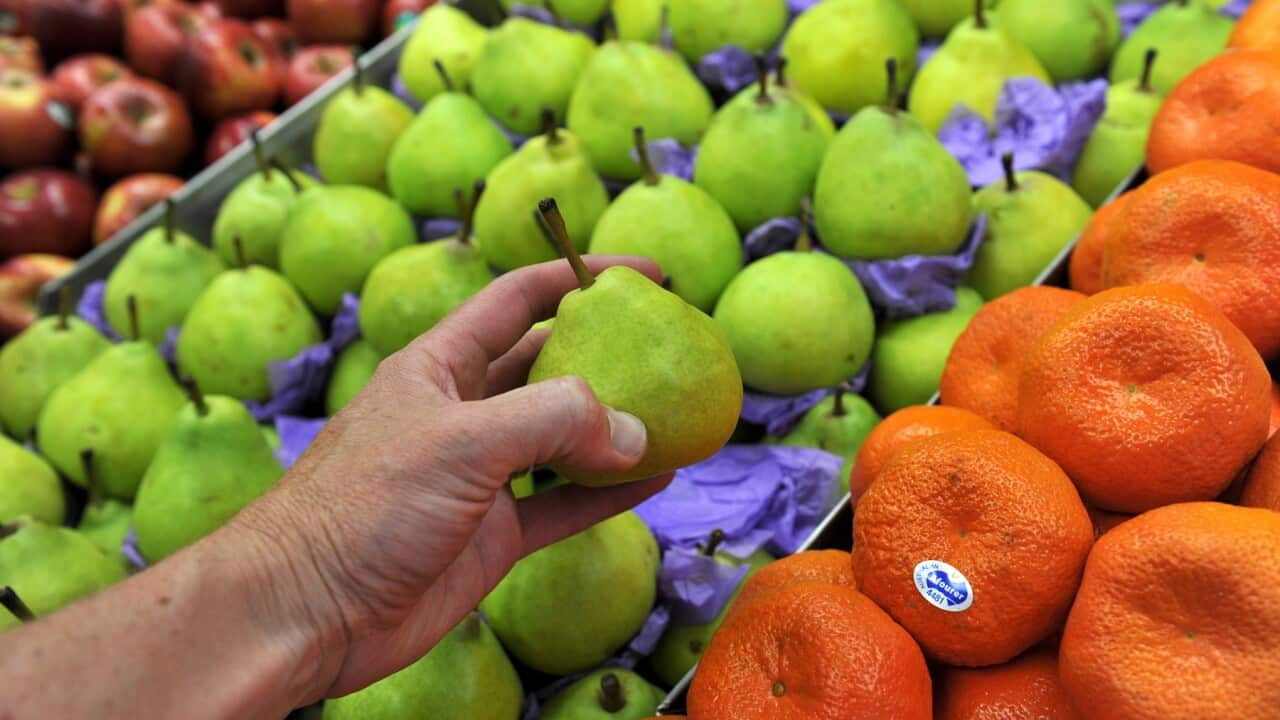TRANSCRIPT
For Australian households, cost of living pressures are hitting hard.
According to recent surveys, it's becoming more and more common for households to give up basic necessities due to cost pressures.
But some communities are disproportionately impacted by rising prices and price gouging.
Price gouging is when prices for goods, services, or commodities increase to a level much higher than is considered reasonable or fair.
Thomas Costa is the Assistant Secretary of Unions New South Wales - the peak body for unions in the state.
He says price gouging can adversely affect migrant communities in particular.
"Overwhelmingly, they are underpaid and paid below minimum wage. But also they are being charged excessive fees for things that ordinarily we would consider just standard costs. So for example, accommodation and transport, migrant workers pay considerably higher amounts for those things than other works and other people in this state because they are easy prey to exploitation."
Mr Thomas also says migrant workers in regional areas traditionally experience financial hardship due to disproportionately high rental prices.
"Migrants working in regional areas in particular, particularly horticulture workers, are being charged up to 160 dollars per week for rent to share a room with six other people. To put it in context, these workers are 30 to 40 dollars a day. It is absolutely outrageous."
Professor Allan Fels AO is the Chair of a recent inquiry into price gouging and unfair pricing practices.
Commissioned by the Australian Council of Trade Unions, the inquiry is examining the scale of price gouging practices being implemented by large businesses and their impact on Australian households.
Professor Fels says migrant communities are some of the hardest hit by price gouging.
"There's been a bad history of seriously underpaying them and that needs to be made a criminal offence, where it is deliberate and sustained and serious. Another area where migrant families get very hard hit is when they're trying to send money home or bring it in from overseas. The transfer price - the remittance charge - is extremely high and I would regard that as price gouging."
According to Professor Fels, price gouging is part of a larger systemic issue where corporate profits and executive salaries have risen, but wages have remained stagnant.
The cost of basic necessities has also risen in line with inflation, forcing some households to give these up entirely.
But recent OECD research has revealed that corporate profits have been a major driver of inflation.
In Australia, prices for goods and services has increased to inflate profit rates and not to match increased costs of production.
Professor Fels says this is a big issue for suppliers of goods and services who are earning less for their products, like farmers.
"Farmers are getting paid less for their meat. But we consumers all we see is food prices and meat prices going up or barely going down. It's a significant problem because the profit share of national income has risen very sharply. The wage share has gone down. There are a lot of extra profits being made and it is through business pricing."
Supermarket giant Woolworths posted a profit of $1.62 billion dollars for the 2023 financial year.
Its main competitor Coles also posted a $1.1 billion dollar profit for the same period.
Pradeep Philip is the Head of Access Economics at Deloitte.
He says other measures are also needed to combat cost of living pressures.
"In addition to the spot checks on price gouging, we need some more fundamental reform of competition. We need to look across all of our sectors and make sure that competition reforms are driving the best deal for the consumer. So one of the things we need to do to structurally deal with underlying inflation is make sure that we drive competition reforms for a broad range of sectors in our economy. And again, in doing so, what we might also end up doing is igniting a bit more entrepreneurial spirit and innovation, which is really important for driving productivity in the economy."













